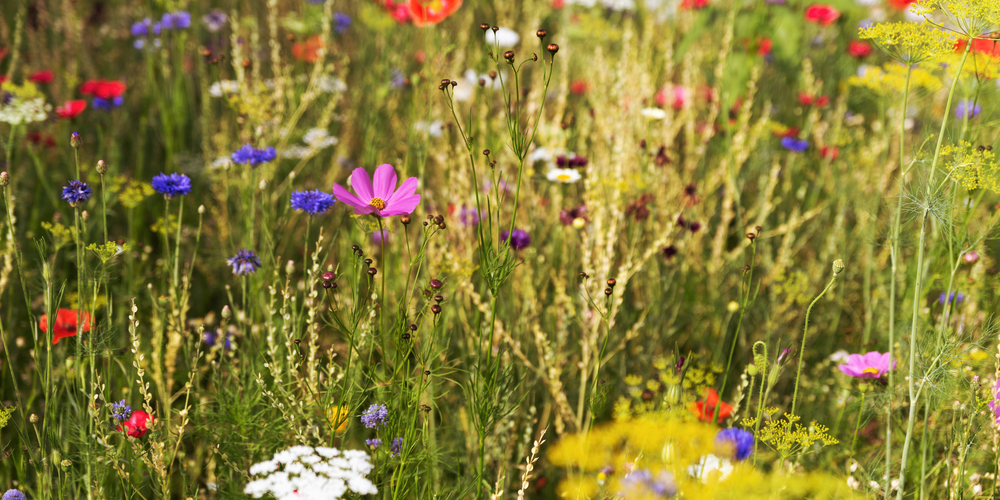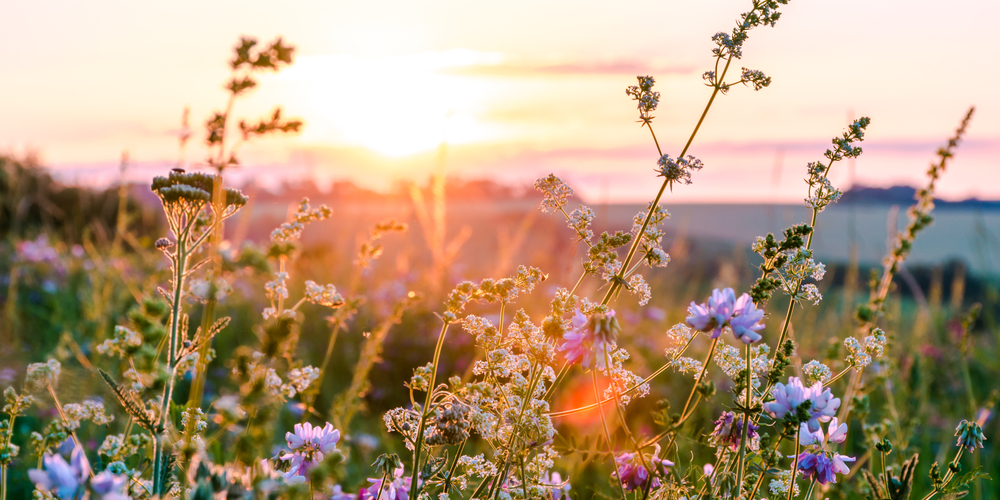Sowing wildflowers can be a satisfying experience. If you know how to do it properly, you will get colorful splashes of blooms in your yard for many years to come. However, you must know what to do to provide your wildflowers with what they need to thrive. Several weeds and grasses might make the environment too competitive for them to survive. To prevent this from happening, you must create a barrier on the soil.
In some ways, mulch is the best way to protect your seeds. But can wildflower seeds grow through mulch? Keep reading to find a concise answer to this question. Plus, we included some tips on making the most out of your wildflower seeds and having them thrive in your garden.
Can Wildflower Seeds Grow Through Mulch?
Mulching can help wildflowers to establish in your lawn. This technique helps improve water retention in the soil and increases the nutrient content. Also, it can contribute to minimizing erosion, especially if you live in a dry area. Weed-free straw and pine needles make for perfect mulch materials.
You can even find mulch at your favorite gardening store. While it can be beneficial, you need to be careful when applying it to the ground. Don’t spread it too heavily, as you might make it hard for your seedlings to emerge.
But don’t mulch over the top of your seed, as this might prevent them from getting the amount of light they need to grow. Instead, apply it around your plants when they are at least three to four inches high. Also, don’t forget that wildflowers need to remain in contact with the soil for their seeds to sprout and germinate healthily.
If you live in areas where it is hard to grow plants, you don’t have to worry: you can apply rock mulch to help your seeds establish. This solution works effectively even in dry and windy areas. Evenly spread coarse gravel around the surface and not disturb it by walking on top of it. A thin layer can aid germination, retain moisture, and protect your seeds from attacks from birds and other mammals.
Remember that wildflower seeds won’t grow well through a thick mulch. Keep the layer thin to allow your seeds to sprout. Mulch can help prevent your seeds from drying or becoming too hot if you plant them during the summer. However, you’ll need to place it properly to ensure healthy germination rates.
Growing Wildflower Seeds
Before sowing your wildflower seeds, you must choose a location. Place them somewhere they can receive full sunlight and prepare the soil before planting them. Aeration is crucial in ensuring your seeds can get the oxygen, sunlight, nutrient content, and water they need to germinate.
Wildflowers prefer poor soil rather than rich compost. You shouldn’t fertilize your soil unless its nutrient content is not rich enough for your plants to grow. The addition of fertilizers can encourage the spread of weeds and the production of lush foliage in substitution for flowers. If your soil needs some help, consider adding organic matter to enhance texture and improve water retention.
Plant your wildflower seeds in the spring to get colorful blooms by the summer. If you live in an area with mild winters, you can even plant your seedlings during the fall. Cover them lightly with some seed-raising mix or garden soil, but don’t overdo it as you might block the light from hitting your plants, halting their growth.
Consider getting a wildflower native mix to grow a balanced range of flowers. Keep in mind that these mixes will most probably include more than 20 different species of flowers. While this might make your garden more attractive, you might have to deal with diverse speeds of growth and heights. Also, most mixes contain annuals and perennials, meaning you will get flowers all year round if you provide them with the care they need.
Can Wildflower Seeds Grow Through Mulch: The Bottom Line
So, to keep the story short, wildflowers can grow through mulch as long as you keep the layer thin. With naturally moist and fertile soil, don’t bother with mulch. It won’t do much to help your plants and might be counterproductive. Otherwise, consider adding a thin layer of mulch, but only when your plants are about three inches long.
Related Article: Why Might Soil Rich in Organic Matter Not be Fertile?

